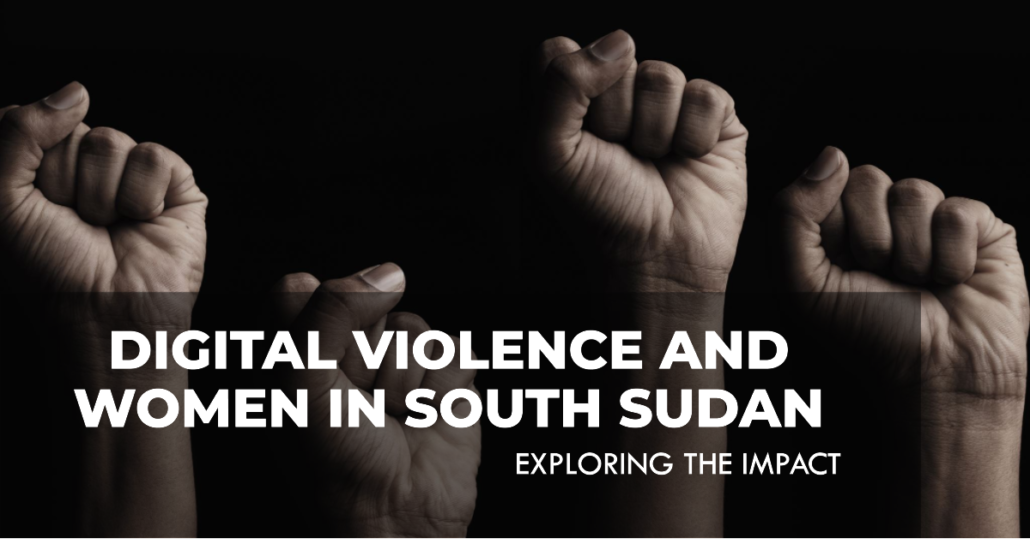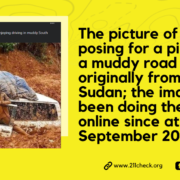Explainer: What does digital violence mean to women in South Sudan?
Digital violence, defined as an act of violence rooted in gender inequality and committed using information and communication technologies or digital media, is a widespread issue facing women globally, with types including cyberbullying, sexting, stalking, grooming, shaming, and doxing; in South Sudan, a lack of specific laws addressing these crimes puts women at even greater risk online.
Writer: Beatrice Amude Paulino
Violence against women is one of the world’s most widespread human rights violations. It results in physical, sexual or mental harm or suffering to women, and its means and tools vary with the passage of time and the growing information and technological revolution.
According to the United Nations Population Fund, online violence or digital violence is defined as an act of violence perpetrated by one or more individuals that are rooted in gender inequality and gendered norms, and that is committed, assisted, aggravated and amplified in part or fully by the use of information and communication technologies or digital media, against a person based on their gender .”
Digital violence is the behaviour that aims at harming or a situation where other users want to impose circumstances that the user is unwilling to or does not consent to in mobile or internet applications. Digital violence can also refer to disruptive online actions, such as cyber-bullying or cyber warfare.
Types of Digital Violence:
Cyberbullying: is psychological harassment, mainly through the media.
Sexting: can be in the form of photos and videos of a sexual form that can be posted online or sent to someone through a phone.
Stalking: is referred to as harassment on any technological platform.
Grooming: is the type of harassment exercised by an adult person towards a child, such as when an adult sexually abuses a child.
Shaming is any action designed to shame the victim, mostly towards women.
Doxing: consists of the action of publishing private information without the person’s consent.
The Characteristics of Digital Violence:
Digital abuse can occur in people of all ages, although it is especially common among teenagers and young people who use smartphones more often. Signs of digital abuse may include but are not limited to intimidation and harassment, surveillance and stalking, sexual coercion, possession and control.
Levels of Digital Violence against Women in South Sudan:
According to a United Nations Population Fund (UNFPA) study, “ 85% of women globally have been exposed to or experienced some form of online violence, and nearly 40% have experienced it personally.”
Research in 2020 by Plan International, the #freeToBeOnline campaign to protect girls and women online, stated that 14 thousand of girls from 22 countries, including South Sudan, were physically and racially threatened and abused online. The report stated that cyberbullying may contribute to the suicide surge among youth today. But for South Sudan, the young generation engaged both online and offline “might be dying in silence without speaking out.’’
An article by Defyhatenow in February 2021 discusses the issue of physical and cyberbullying in South Sudan, highlighting the lack of specific laws addressing these crimes. The authors cite various sources to support their claims, including research studies and interviews with experts and victims.
Conclusion:
Policymakers should consider taking action to protect women’s rights in digital spaces after acknowledging the potential risks women may face due to digital technology.
The government in South Sudan should ensure the operation of effective women’s protection mechanisms online and safeguarding policies while respecting women’s rights in all settings where women access the digital environment, including the home, offices, education settings, cybercafes, youth centres, libraries, and health care facilities.
To ensure accuracy and transparency, we at 211 Check welcome corrections from our readers. If you spot an error in this article, please request a correction using this form. Our team will review your request and make the necessary corrections immediately, if any.


 211 Check
211 Check 





Leave a Reply
Want to join the discussion?Feel free to contribute!